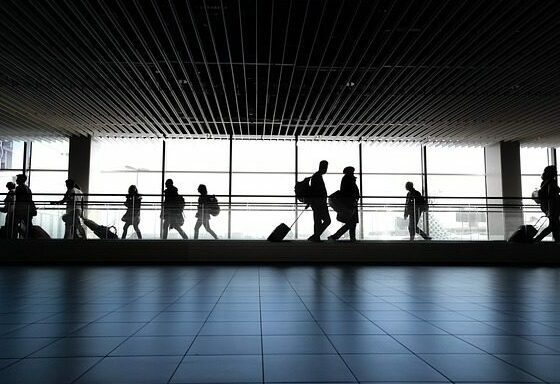
Hotel distribution and revenue platform SiteMinder has released SiteMinder’s Changing Traveller Report 2025, revealing 63% of travellers are open to using AI for trip planning and booking.
The report from SiteMinder, which is the largest survery, globally, on accommodation, analysed research conducted by Kantar in August 2024, surveying more than 12,000 travellers in 14 of the world’s largest tourism markets.
It found that 63% are open to using AI at times for planning, booking and experiencing their hotel stay, rising to above 90% among Gen Zers (18-27) and dropping to below 40% among those over the age of 60.
SiteMinder’s data exposes stark contrasts in openness to AI, with strong adoption in Thailand and Indonesia (98% each), China (96%), and India (94%), compared to lower levels in Canada, Australia (62%), Germany, France, and the UK (63% each).
UK travellers are second only to Canadians in using travel agents to book their hotel stay, with 14.5% planning to book this way, up from 6.5% in 2020 and above the global average by three points.
Notably, Millennial (28-43) bookings through travel agents have grown from 11% to 18% in the last year.
It found that fifty percent of UK travellers will choose Standard (basic quality) Rooms in 2025, above the global average (46%) and reaching 59% among Baby Boomers (60-78).
This contrasts the only 19% of Chinese travellers choosing Standard Rooms, however remains below those from Spain (59%), Canada (55%), Italy (55%), Thailand (54%), Germany (53%), France (52%) and Mexico (51%).
Despite this budget-conscious approach, UK travellers remain committed to creating memorable travel and accommodation experiences in 2025.
Fifty-three percent said they are more likely to travel for an event, 57% are willing to pay more for eco-friendly options and 82% are open to spending additional on extras beyond the cost of their room.
When on site, 28% of travellers plan to work, up by 6% year-on-year, but well below the global average of 41%.
Forty-one percent intend to spend “most of the time” or “considerable time” at their hotel, ten points below the global average.
Meanwhile, just 49% support hotel price adjustments during busy periods, well below the global average of 65%.
With almost 1-in-4 (23%) disagreeing with the concept, they are, alongside those from Spain (30%) and Canada (25%), among the least comfortable with dynamic hotel pricing.
It also highlighted strong interest among incoming travellers from Canada – where the UK was the third preferred travel destination for next year, Australia (4th) and Spain (4th).
Respondents from heavyweight source markets such as the US, Italy and France also expressed strong interest in the UK, with the country ranking sixth in the former two and seventh in the latter.
Globally, the Singaporean traveller is the most likely to travel internationally next year (93%), followed by those from China (85%), Thailand (83%), Indonesia (79%) and Germany (76%), with Millennials (28-43), the most likely generation to venture abroad, at 80%.
Among UK travellers, SiteMinder’s data shows that 69% plan to travel overseas in 2025, down by 2% year-on-year.
This rises to as high as 79% among UK Gen Zers (18-27). Domestically, their top destinations will be Scotland (24%), London (21%), the South West (20%), Wales (18%) and the North West (14%), while internationally, they will favour Spain (18%), which remains particularly popular among Gen X travellers (44-59) (27%), France (10%), Greece (9%), Italy (9%) and the US (7%).
Forty-one percent will travel with their partner, 30% with immediate or extended family, 15% solo, 13% with friends and 1% with colleagues.
James Bishop, SiteMinder’s vice president of ecosystem and strategic partnerships, said: “The UK’s strong ranking among the top 10 global destinations for 2025 reflects our enduring appeal across diverse markets and traveller profiles.
“To capitalise on this, UK hoteliers must meet the needs of today’s ‘everything traveller’, who values cost-efficiency but is willing to invest in what they see as priority extras to add real value to their experience.
“In this landscape, data-driven insights become critical, empowering hoteliers to anticipate guest needs and deliver them tailored experiences that drive satisfaction, positive reviews, and loyalty.”








